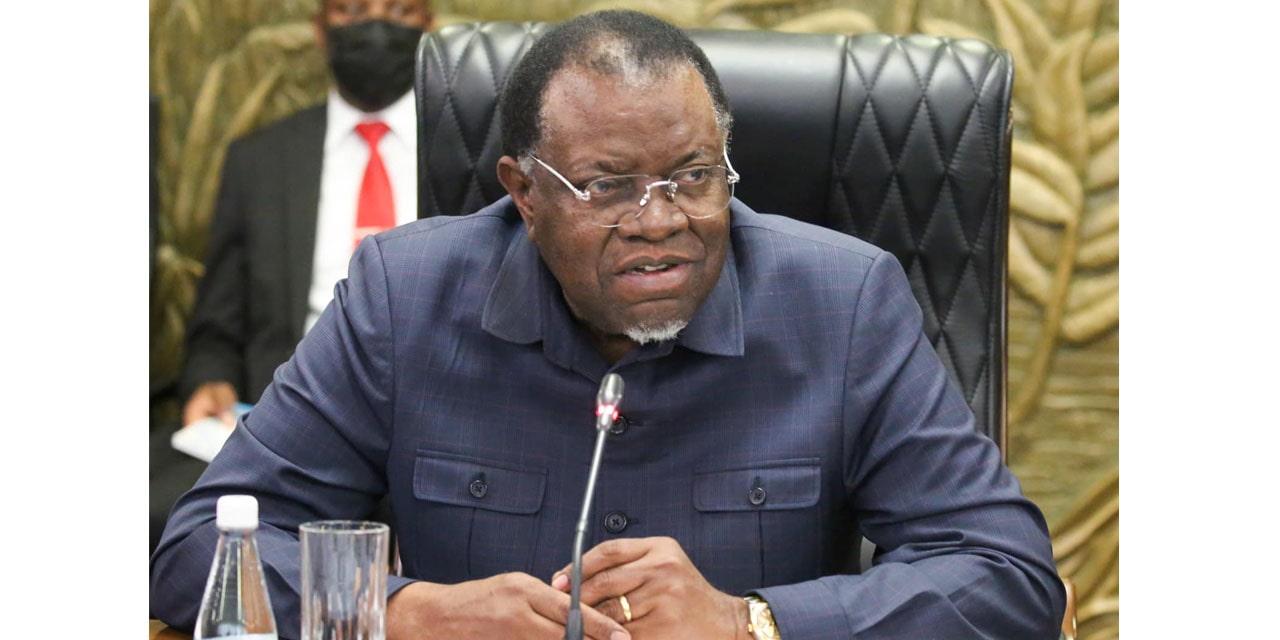Tujoromajo Kasuto
President Hage Geingob says that the Green Energy industry will serve as catalyst for Namibia’s rapid adoption of the Fourth Industrial Revolution (4IR) technologies, while positively contributing to the global fight against climate change.
The President says ‘’that the 4IR technologies contribute to this green economy as an enabler for production and advanced manufacturing systems, communication networks, education, healthcare, government and community services’’.
He said this at the opening of the Namibia Fourth Industrial Revolution Conference in the capital today.
The conference aims to validate the work of the Namibia 4th Industrial Revolution Task Force and is convened under the theme “4th Industrial Revolution (4IR) as an enabler of green and inclusive industrialisation.”
Geingob commented that ‘’with 30 percent of our GDP contribution from Small and Medium Enterprises (SMEs), Namibia aspires to be an industrialised nation by 2030. We have considered two additional pre-determinants to our industrial ambition, namely ‘inclusive’ and ‘green’ Namibia’’
Over the past years, Namibia has embarked on a green future, where the country aims to position itself as a global producer of green hydrogen and ammonia.
‘’Not only do we want to produce green hydrogen for the world, but we want to utilise it in Namibia and include our citizens in the entire production value chain. To demonstrate, under a Memorandum of Understanding that is executed by the University of Namibia on behalf of the Government, Namibia is already receiving carbon credits for using block chain technology to develop a verifiable record for green hydrogen production,’’ said the president.
Thus projects are also underway to teach the youth to develop drones and bush aircrafts.
Last week, the Namibia Institute of Pathology, in partnership with UNICEF, showcased the drones that will deliver and collect medical specimens to remote communities in the Kunene and Zambezi regions.
This will significantly reduce diagnosis waiting times and enable prompt commencement of
treatment for remote communities. Likewise, drones can be used for surveillance to curb crimes such as poaching and in agriculture for pest and disease control.
Unlocking the full social and economic benefit from these types of 4th Industrial Revolution (4IR) enabled projects, Geingob said will require a coherent policy and regulatory framework, such as licences and authorisation to operate drones in the airspace, for such critical missions.
Moreover, the Namibian Government has prioritised focus on agriculture, as one of the sectors in addition to health, finance, defence and education, where 4IR technologies can be used to increase production, create new jobs and ensure food security for the nation.
Additionally, Geingob observed that Enterprise Development with focus to inculcate a culture of
entrepreneurship and strengthening innovation value chains has been central to economic recovery, growth and investment promotion initiatives.
“The convergence of technology and innovation can create viable industries for job creation, in sectors like Fin-Tech, Edu-Tech, Health-Tech, Agri-Tech which are all underwritten by the Creative Industries who design, code and develop the soundtrack themes for these technological advancements,’’ he added.
To this end and as special project undertaken, the 4IR Task Force has been working jointly with the World Economic Forum to develop a 4th Industrial Revolution Policy and Legislative Toolkit, for use to ensure Namibia’s policy and legislative instruments are 4IR compliant and “Future-Proof” in the wake of leapfrogging technologies which double in capability and halve in price, on average every 18 months.
Email: reporter3@oberver.com.na




